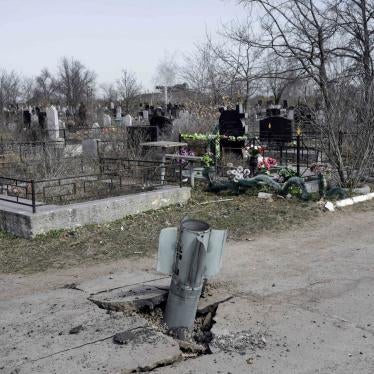The European Union (EU) should continue to press candidate countries in Central and Eastern Europe to improve arms trade controls, Human Rights Watch said today. Tomorrow, the EU is expected to release the latest annual reports assessing the progress of individual candidates toward accession. These will help pave the way for final decisions, expected later this year, on the next round of EU enlargement.
Several candidate countries in Central and Eastern Europe have a track record of supplying arms to human rights abusers, areas of violent conflict, and clients suspected of diverting weapons to unauthorized destinations, and such practices have continued.
“In the past year, some EU candidate countries have made strides in improving controls on the arms trade,” said Lisa Misol, researcher with the Arms Division of Human Rights Watch. “But the European Union must remain engaged, even after enlargement decisions are made, to help secure improvements and address remaining problems.”
In a new briefing paper released today, Human Rights Watch said that the prospect of EU enlargement had helped motivate the tightening of arms trade controls by Central and Eastern European countries. Human Rights Watch stressed, however, that more work was needed to ensure reliable control over the trade and adherence to basic norms governing arms exports.
Drawing on recent examples from Bulgaria, Czech Republic, Poland, Romania and Slovakia, Human Rights Watch highlighted the following concerns:
Authorized arms transfers to destinations where the weapons risk fueling human rights abuses and armed conflict,
The absence of sufficient checks to prevent the diversion of weapons to unauthorized destinations,
The activities of arms brokers and transport agents who disguise the true destination of the weapons,
The need to strictly enforce arms embargoes and punish violators, and
The sale of surplus weapons from government arsenals to trouble spots around the globe.
Human Rights Watch offered recommendations for how EU countries could help ensure strict controls on the arms trade from Central and Eastern Europe. It also called on Western European countries to live up to minimum standards, as outlined in the 1998 EU Code of Conduct on Arms Exports, to which candidate countries have also adhered.
Human Rights Watch said that, in addition to raising standards among candidate countries, EU member states should exercise the utmost caution in national arms trade decisions, in strict compliance with the EU Code of Conduct.
“When it comes to stopping irresponsible arms trading from Europe, the European Union should lead the way by example,” said Misol.






